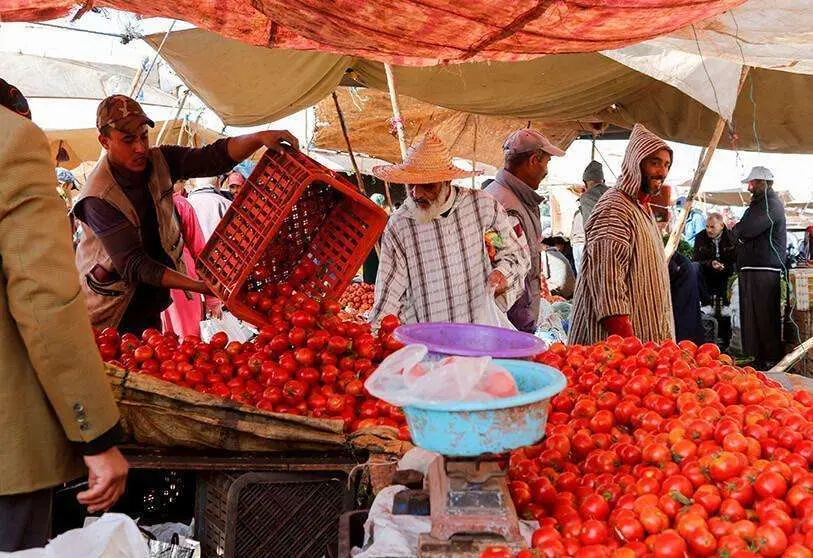Marruecos apuesta por el sector agrícola pese a la subida de los precios

The head of the Moroccan government, Aziz Akhannouch, will propose a decree to eliminate VAT on phytosanitary products used in agriculture, equipment used for fruit and vegetable production and imported animals used in agricultural production. The aim of these measures is to secure the supply of basic products in the country, protect the Moroccan domestic market and curb price rises in the agricultural sector. Thus, the costs of agricultural producers will be alleviated to prevent them from increasing their prices or abandoning their area of activity.
The cost of agricultural production has been severely damaged by the rising cost of imported seeds, fertilisers and phytosanitary products. Inflation rose to 6.6% in 2022, mainly due to repeated droughts in the country and difficulties in the supply of some commodities worldwide. However, according to the International Monetary Fund, inflation in Morocco in 2023 will slow to 4.6 per cent and fall to 2.8% in 2024. This forecast is based in part on measures taken by the executive to curb inflation and reforms to the tax law in 2023.

Since last year, the Moroccan government has implemented a series of measures to protect the population's purchasing power in the face of rising food and energy prices. Subsidies for transport and basic necessities have managed to stabilise the prices of goods and services in 2023. For example, from January 2023, VAT on imported livestock feed has been eliminated in order to lower meat prices in the country. Although these measures have increased public spending to 2% of GDP, new fiscal measures are being considered to protect the most vulnerable population from the consequences of inflation.
The government is taking all necessary measures to avoid being affected by rising commodity prices and market uncertainty. In April, the IMF granted Morocco a flexible credit of $5 billion over two years. According to IMF deputy director Antoinette Sayeh, this loan will provide the country with additional insurance against extreme risks, and is seen as a precautionary measure. Morocco is thus anticipating a possible deterioration in the global economy or continued inflation until 2025.

This loan comes months after the IMF gave the go-ahead to the fiscal measures of the 2023 Finance Law proposed by the Moroccan government, which, among other things, aims to reduce debt to 70% of GDP by 2027.
Morocco has also been committed to the primary sector since 2008 with the launch of the 2008-2018 Green Plan, which gave an unprecedented boost to the country's agricultural sector. With the implementation of the Génération Green 2020-2030 strategy, the aim is to consolidate the achievements of the Green Plan, create new jobs and modernise the sector. Another key point of the strategy is the creation of an agricultural middle class, where more than 400,000 families decide to choose agriculture as a way of life, 690,000 families are consolidated in this sector, three million farmers are subsidised and farmers are part of efficient agricultural organisations.

In addition, it aims to energise rural youth and develop human capital through the training of 150,000 young people.
In addition, the strategy aims to sustain agricultural development in the long term. The ambitious plan aims to increase agricultural production by 1.5%, double agricultural GDP and exports, modernise distribution channels, improve product quality and innovation, and make agriculture more resilient and eco-efficient.
Consequently, the elimination of VAT on certain agricultural products will contribute to stabilising the agricultural sector in the country, encouraging both domestic consumption and exports.








